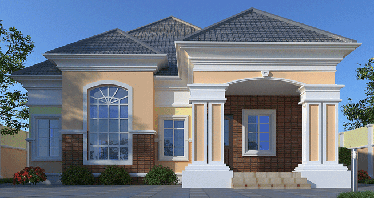
By Danlami Nasir Isah
According to Q4 and full-year 2020 GDP data released by the National Bureau of Statistics (NBS), real estate sector returned to positive growth of 2.81% y/y in Q4 2020, following six consecutive quarters of negative growth since the last positive growth posted in Q1 2019 (0.93% y/y).
The significant recovery in Q4 2020 reflected the full reopening of the economy as many residential and commercial projects began operations fully, following the suspension of activities during the nationwide lockdown on account of the Covid-19 pandemic.
Then, the Nigerian economy grew by 3.4% in real terms in 2021, with an estimated value of N72.39 trillion, increasing from N70.01 trillion recorded in the previous year. Similarly, real GDP recorded its fastest growth since 2014 in the reviewed year, recovering from the Covid-induced lockdown and economic recession recorded in 2020.
The real estate sector, like many other sectors of the economy, had previously suffered deeply at different times from a dip in macro-economic conditions of the country.
In 2016, when the economy went into recession, the sector declined by 6.86% as compared with the growth of 2.11% recorded in 2015.
Subdued activities in the real estate and construction industry had a spillover effect on the cement sector, where growth slowed drastically to 5.4% in 2016 from 22.1% in 2015 on the back of weak private sector investments and low government spending.
In 2020, as the pandemic ravaged the economy, the real estate sector was not left behind as the unprecedented crisis elevated vacancy rates in existing commercial properties, reduced average footfalls across retail centres and slowed the completion time of many residential developments and infrastructure projects in the country.
This led to an all-time high of a 21.99% contraction recorded by the real estate sector in Q2 2020. The impact of the restrictive measures put in place during the second quarter was apparent in the financial performance of two key cement players, Dangote Cement and Lafarge, as both top and bottom-line performances were also pressured.
However, the growth in the sector is expected to remain weak due to an avalanche of factors, ranging from high inflationary figures and devaluation, which continue to pressure consumer purchasing power, as well little access to finance, which has continued to undermine the demand for housing.
Although the performance of GDP, which grew by 3.98 per cent in Q4 2021, does not capture the extent of real estate investments in any given year or quarter, it is worth noting that notwithstanding the low consumer purchasing power, investors were bullish, leading to the growth in the sector.
A real estate firm, Estate Intel, had in a survey last year noted that real estate projects under construction in major commercial cities increased by 19 per cent in 2021, meaning that investors committed a lot of funds into the sector.
The sector came back forcefully to positive growth trajectory in 2021 after about 12 straight quarters of recession and negative growth. It recorded 3.83 per cent growth in the second quarter of that year which was, arguably, its strongest in four years.
“A total GDP growth of 3.4 per cent in 2021 ahead of population growth of 3.0 percent, suggests improved consumer spending. Going into 2022, we believe the narrative on real estate investments will not be far from what was witnessed in 2021, as part of the increased projects under construction in 2021 will be completed in 2022, ultimately expanding real estate consumption,” the firm noted.
Earlier in the year, experts had expressed hope in the sector, predicting a very bright and positive outlook for 2022. Many reasons have been adduced for this optimism, one of which is 2022 being a pre-election year that is, historically, characterized by completion of abandoned projects and investments in new ones to appease the electorate.
The expected Central Bank of Nigeria (CBN) intervention in the housing sector, enabling environment and deployment of technology, have also been presented as possible reasons the sector will, in 2022, surpass the performance of the previous year.
Meanwhile stakeholders have expressed optimism for the year 2022 in the real estate sector. Femi Oyedele, an estate surveyor and valuer, predicted that the sector would witness a growth rate of 2.9 per cent in 2022.
He pointed out that in 2022, people expect that things would look up and that politicians would be able to find solutions to the insecurity challenges in the country, especially ahead of the 2023 general elections.
“I am optimistic that 2022 would be much peaceful and with that, Diaspora Nigerians and foreign investors would be attracted to the real estate sector,” Oyedele said, adding, “Lagos State government is doing much in the sector while the Federal Capital Territory (FCT) is also talking about land swap; if this is properly executed, it will have great impact on the sector in year 2022,” he said.
At another 2022 Real Estate Market Outlook event hosted by Northcourt Real Estate in Lagos, experts were also optimistic, noting that the disruptive role of technology and population movements, especially among the millennials, would be among the four major factors to drive demand for real estate assets in 2022.
The other two factors that would also drive demand in the new year, according to the experts, included deficit in quality real estate and demand for yield by investors in this largely preferred asset class.
“These four D’s represent the opportunities we see in real estate business going into the new year,” explained Funke Okubadejo, Director of Real Estate at Actis, an institutional investor with interest in diverse sectors of the economy.
Okubadejo noted that, at the moment, investors were looking for where to invest productively in order to get good yield, adding that yield-hungry investors no longer worry about risks as much as they do with yield.


